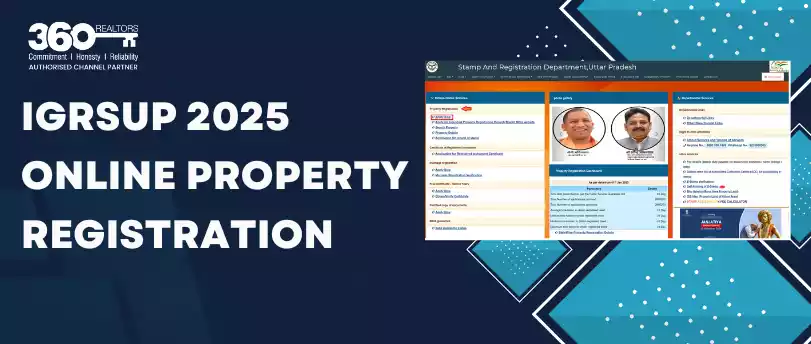Several grants and relaxations announced in the Union Budget for the real estate industry have been welcomed nicely by the trouble ridden housing sector, which is now brimming with hopes that the various recommendations made will go a long way in pulling the property market out of the woods and the reliefs provided in the budget would yield results. With the announcement of the budget 2016-2017, the Finance Minister has taken his initial steps to provide a boost to the real estate industry of the country and ensure that the dream of “Housing for all by 2022” becomes a truth under the housing scheme of things. The budget proposals seem to be very optimistic for the dull and stagnant real estate market that had been into depression since long, due to the continued slump and are expected to create a spur and restore the demand as the prospective home buyers have been longing for some sort of stimulus to be actually able to buy a property. The sector has breathed a collective sigh of relief when the Union budget was presented.
The major recommendations of the budget pertaining to the property market are:
Additional interest deduction, a good push for the first time buyers: To motivate the first time investors, the finance minister has declared an additional deduction of Rs 50,000 annually on interest, for housing loans up to 35 lakh, to be granted during the next financial year, provided that the value of the house is less than Rs 50 lakhs. This exemption comes with a reason to smile for the first time home buyers as more and more people would opt to purchase their own houses and bring them to the market which will in turn create activate the otherwise slow real estate sector.
“Affordable housing” defined by the size of the house instead of value Since 90% of the housing demand comes from the affordable segment, the finance minister has waived off the service tax on the construction of affordable houses which covers houses built up to 60 square meters under either Central or State government including PPP schemes. With this announcement, a strong push has been given to promote the development of low cost and economical housing, which were otherwise always ignored due to business growth reasons. Development of such housing projects will serve as an attractive business proposition to industrialist and entrepreneurs who would shift their focus to this segment, which had earlier taken a backseat. Bringing a much needed delight to the much aggrieved reality estate market, this budget is definitely a good one that will boost both demand and supply respectively. It was for the first time that people were more concerned with the size of their house rather than the market value.
Affordable housing in metros and II tier cities. Though the tax exemption for home sizes of up to 30 square meters in metros and 60 square meters in other cities will cater to the requirements for affordable housing in urban areas but this scheme is applicable for only those projects which are approved between June 2016 and March 2019, and completed within 3 years. Though this is being welcomed but builders feel that first there should be an upswing of profits for the builders say something to the tune of 15-20% and also it is felt that the year period is a little tight as it takes time to take the approvals and get the construction done. Incentivizing developers by 100% Income Tax exemption on such housing projects will be beneficial for builders in low-cost housing space.
REITs not subject to Dividend Distribution Tax: Another encouraging announcement has been the scrapping off the Real Estate Investment Trusts (REIT) from the purview of Dividend Distribution Tax thus making affordable housing a reality. This was indeed a positive announcement necessary for the efficient functioning of the REIT’s. With this, is expected the declaration of the first REIT listing of the country, by the developers and builders, which will help the realty sector to regain its lost shine. Asset holders now look into REITs as a workable option as they had to put their properties on hold.
Even the Ready Mix Concrete exempted from Excise Duty: Till date, only the concrete mix manufactured at the site was exempted from excise duty, but now the same privilege has been extended to the Ready Mix Concrete produced at the construction site also and is being considered as a genuine rationalization of taxes. This exemption would cut down the cost of construction considerably and encourage the developers to pass on the benefits to the prospective home buyers.
Budget brings smile for rent payers also: The HRA deduction under Section 80GG, for the salaried has been increased to Rs 60,000 per annum from the previous limit of Rs 24000, bringing a major sigh of relief for those living in rented accommodations.
Though the overall budget is considered to be growth-oriented and is expected to benefit the market sentiments but still there are some issues on which the expectations have not been fulfilled. No doubt various tax exemptions and incentives have been announced to cheer the realty sector but much to the disappointment of people, the demand to provide realty sector “industry and infrastructure status” went unnoticed, which would have helped people avail the benefits of low cost funding through banks and other financial organizations. Long pending demands like single window clearance, mandatory home insurance, road map for implementing GST have also been missed in the budget. Though out of the range of State Government, but issues like Bearing stamp duties on properties also needs to be addressed.
The service tax exemption for houses less than 60 square meters in non-metros and 30 square meters in metros would have been an optimistic move if the size was kept uniform in both the categories. In metros and tier 2 cities the property prices are really high and this bracket for tax exemption wouldn’t be of much help as the buyers will start purchasing properties on the outskirts of cities and end up living on rent inside the city limits.
Also the interest rebate of Rs 50,000 for first time investors should be increased since an average accommodation in cities like Mumbai, Delhi or Bangalore would be much more than what is mentioned by the government.
Overall, for an industry which has been in doldrums since last few years the Real Estate Budget 2016-2017 is expected to get a push in both the demand and supply with a focus on affordable housing. With the various provisions made, the realty sector or specifically those involved in housing projects could anticipate a commotion of activity happening in the coming days and the property market is expected to turn positive after a long and protracted slump.






